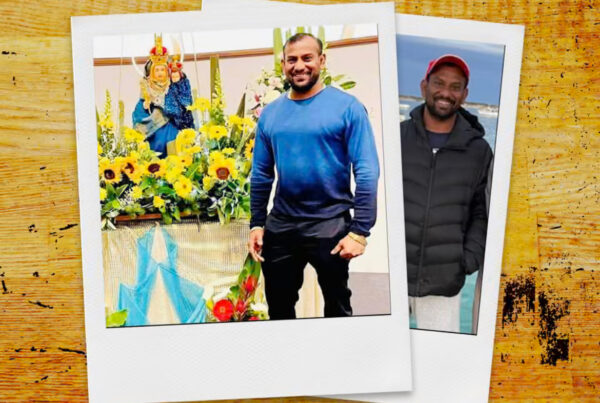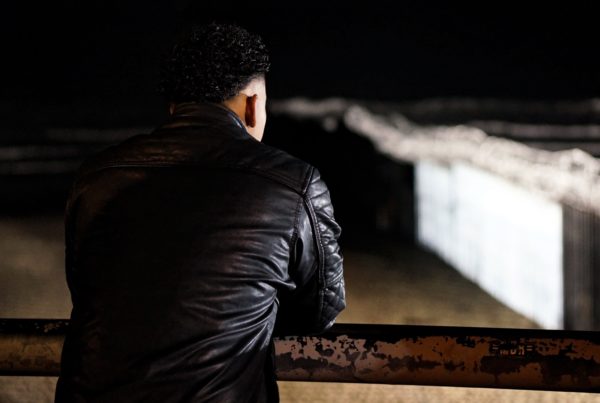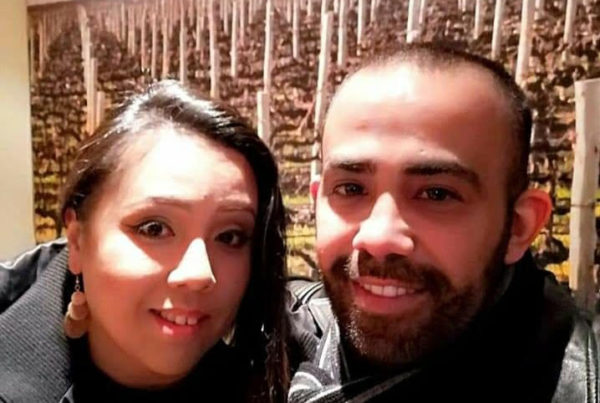I am in a car escaping smoggy Jakarta on my way to Bogor, in central Java, to find people who are currently seeking asylum. My contact is a twenty year old Hazara from Afghanistan named Ali. We meet at a train station in Bogor and we walk to his home. He adopts a humble demeanour when addressing me, but he has a genuine smile. He walks with a limp.
Ali explains to me that when people who are seeking asylum arrive in Indonesia they are expected to register with the UNHCR. Once registered, they can stay in Java, specifically Jakarta, Bogor and Cisarua until their case is settled.
“We do not know how long it will take,” he says.
There are three rooms connected by a hallway in Ali’s house. The bathroom doubles as a laundry, the living room doubles as a bedroom, and the kitchen is a room with a stovetop cooker in it. Ali lives with two other housemates who are also from Afghanistan. We all sit on the floor together.
There are very few support networks or mechanisms in the community for people classified as refugees and asylum seekers. They are permitted to remain in Indonesia but they have no right to work or conduct business as this would be seen as competing for income with locals, half of whom live below the global poverty line. They have no free health care and no accommodation support. Children can go to school for free if they speak Bahasa (Indonesian). Ali, like many refugees in Indonesia, relies on a remittance from his family to survive.
Despite their impoverished situation the three men serve lunch and encourage me to eat. They serve meat and rice with bread and soft drink. Afghan culture values hospitality highly and in order to feed me meat it is certain that they have had to make sacrifices.
Faced with an uncertain future with no support, many people seeking asylum take the risk of getting on a boat to Australia. The costs of hiring a smuggler are paid are up front with no guarantee of getting on the boat or arriving at the destination. If Ali is caught by police trying to get on a boat he will be taken to a detention centre where he could stay anywhere from several months to a couple of years or more. His refugee status determination will continue whilst in detention.
Those people not registered with the UNHCR who are caught by Indonesian authorities are held in immigration detention until they are referred to the UNHCR and have had their refugee status finalised. From referral to refugee interview with UNHCR often takes a year or longer.
Ali tells me that he avoided registering with UNHCR because if he tried to leave Indonesia by any means his registration would be cancelled and they would never register him again. I am told by Lucy Fiske, a researcher at the University of Technology, Sydney, that Ali’s belief does not accurately represent the UNHCR rules, but that it is the belief of many people seeking asylum when they first arrive in Indonesia.
“Few actually understand the formal system and most are reliant on smugglers and other asylum seekers for their information,” Lucy says. “They piece together bits of information that they pick up along the way and try to fit it together in some comprehensible fashion. Some of the information they get is wrong, or is anecdotal. They operate in an environment of quasi-knowledge riddled with fear and hope.”
Ali has been in Indonesia for two and a half years. He has been arrested four times trying to get on a boat to Australia and has escaped police custody four times.
Since Ali’s arrival in Indonesia, major changes to Australia’s immigration policy has meant arriving to Australia by boat is no longer an option. Those who take boats to Australia now will either be turned around and sent back to Indonesia or sent to Nauru or Manus Island offshore detention centres.
“The way is closed,” he tells me.
To make matters worse for Ali, the Australian Government is in the process of removing protection frameworks in Indonesia for asylum seekers. Scott Morrison, the former Australian minister for Immigration and Border Protection, announced in November 2014 that people who seek asylum who registered with the United Nations in Indonesia after July 1, 2014 would not be eligible for resettlement in Australia, stating “it’s taking the sugar off the table”. Scott Morrison’s intention, he said, was to remove Indonesia as a destination country for people who are seeking asylum.
Australia’s withdrawal from its regional obligations means that the UNHCR has to find other countries to resettle refugees from Indonesia which has created an even bigger backlog of refugee claims in Indonesia.
Ali is one of these men waiting for resettlement. The short stay he expected to make in Indonesia has dragged out beyond belief and he is now forced to build a meaningful life for himself, while still holding onto the dream of future resettlement.
He is happy to share his story with me.


